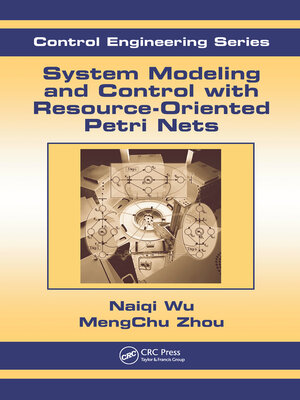System Modeling and Control with Resource-Oriented Petri Nets
ebook ∣ Automation and Control Engineering
By MengChu Zhou

Sign up to save your library
With an OverDrive account, you can save your favorite libraries for at-a-glance information about availability. Find out more about OverDrive accounts.
Find this title in Libby, the library reading app by OverDrive.



Search for a digital library with this title
Title found at these libraries:
| Library Name | Distance |
|---|---|
| Loading... |
Petri nets are widely used in modeling, analysis, and control of discrete event systems arising from manufacturing, transportation, computer and communication networks, and web service systems. However, Petri net models for practical systems can be very large, making it difficult to apply such models to real-life problems.
System Modeling and Control with Resource-Oriented Petri Nets introduces a new resource-oriented Petri net (ROPN) model that was developed by the authors. Not only does it successfully reduce model size, but it also offers improvements that facilitate effective modeling, analysis, and control of automated and reconfigurable manufacturing systems.
Presenting the latest research in this novel approach, this cutting-edge volume provides proven theories and methodologies for implementing cost and time-saving improvements to contemporary manufacturing systems. It provides effective tools for deadlock avoidance—deadlock-free routing and deadlock-free scheduling. The authors supply simple and complex industrial manufacturing system examples to illustrate time-tested concepts, theories, and approaches for solving real-life application problems. Written in a clear and concise manner, the text covers applications to automated and reconfigurable manufacturing systems, automated guided vehicle (AGV) systems, semiconductor manufacturing systems, and flexible assembly systems.
Explaining complex concepts in a manner that is easy to understand, the authors provide the understanding and tools needed for more effective modeling, analysis, performance evaluation, control, and scheduling of engineering processes that will lead to more flexible and efficient manufacturing systems.







